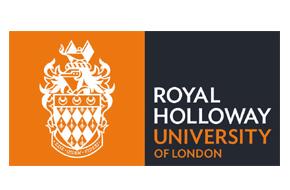Note in addition to being awarded the prize for Best Dissertation, Tracey also successfully applied for a scholarship for a PhD at Royal Holloway, which she is now pursuing.
Even from the start of my MA
Marketing course at Royal Holloway, University London, the prospect of
writing a 12,000-15,000 word dissertation loomed in the ever distant horizon in
quite an antagonising way. Was it a possible feat? Or would I crumble somehow
at the last hurdle? Just the mere fact that it engulfs a whole summer term is
credence to how challenging it would be and notably how crucial it was to my MA
marketing course overall. It was definitely not something to be taken lightly!
However during my Postgraduate year, as days and then months passed by, ever
growing closer to the ominous summer term, no one was quite more amazed than I
that my anxiety of writing a 12,000-15,000 word dissertation somehow turned
into glee. Although it was not realised at the onset, as I progressed with my
course, it began to slowly settle in that as a MA Marketing student at Royal
Holloway you are not suddenly thrust into completing a dissertation at the
onslaught of summer term. Rather you are thoroughly and deeply guided into it,
making it significantly easier to comprehend and get to grips with. Not only
does your assigned supervisor for your dissertation assist you every step of the
way, but it can also be reasoned that every prior marketing module undertaken
before your dissertation, is designed to cater to the finessing and harnessing
of a suitable research topic and research method for your dissertation.
Consequently once I overcome the initial fright, I was able to focus more, not
on the challenges ahead, but the excitement of being able to choose whatever
research topic, question and method I wanted, that would best allow me to
thrive and achieve academic success.
It is no surprise that completing work
on such a grand scale requires a real passion for the topic chosen to explore.
Marketing encompasses a broad depth of areas and I believe strongly that
everything in some way or another can be related back to its broad concept. Subsequently
I chose to work from ‘the outside in’ whereby I found a theme which I loved and
then looked for areas in marketing that could encompass such theme. Of course
there was also a plethora of more standard marketing topics which were
available for me to choose from, helpfully explored in great depth during the
various marketing modules I undertook in the autumn and spring term. However
when it did actually become time for me to seriously consider and craft my
research topic; the best thing to do was research… research… research! A well
thought out and suitable research question is not going to just fall on your
lap. It requires gaining deep insight into your desired general topic area and
thus my advice for anyone about to undertake a dissertation would be to think
carefully about the topic you want to spend 3-4 months researching. From
discussing with further students when I undertook my MA course, it seemed
apparent that picking a general topic did not reap as much benefit as when
students challenged themselves with their topic and pushed the limits.
After extensively exploring all the
options available I chose to take a socio-cultural approach to marketing when
formulating my research question. Namely I chose to explore the socio-semiotic gendered nature of contemporary romance
novels as tools of marketing and whether and to what extent patriarchy is still
the overarching theme within them. This research built on previous research
findings concerning the gendered nature of romance scripts in popular culture
and used thematic analysis in exploration of the gendered socio-semiotic
constructions of Harlequin romance novels. I chose to explore contemporary popular
romance novels as they represent one of the biggest sites for the
representation of individuals as gendered subjects.
I was relieved
that I was not bound to the first research question I came to develop. This was
because during my research, many new and exciting themes of exploration began
to stand out to me which called for further exploration. Namely it became
apparent that more ‘guised’ forms of patriarchy namely; ambivalent sexism,
bigendered subjectivity and phallic symbolism were prevalent in romance
scripts. Thus further exploration was needed to determine whether recent
challenges by academics as to the patriarchal nature of contemporary romance
novels was distorted owing to such novels continued unconscious expounding of
patriarchy in light of many un-explored gendered ideologies. It was clear from
my research that there seemed to be a vehement acceptance by academics of
patriarchy in such novels without appreciation of the manifest attempts of
romance novels to reconcile the hero/heroine dichotomy with society's changing
attitudes about gender. Specifically such 'skipping over' by academics of the
nuanced albeit 'misleading' feminist thought within such novels meant that much
of the previous research within this field was unable to adequately challenge
contentions that oppose the continued prevalence of patriarchy within them.
Thus it was crucial that my research question allowed for a more critical
understanding of the hero/heroine dichotomy in such narratives by having
recourse to more micro patriarchal theories which would enable the
materialization of a framework of patriarchy.
Inevitably, I
was constantly revising my research question, of course with the approval of my
supervisor and as long as it did not stray too far away from my initial
proposed research question. In the end my analysis found that a practice of symbolic
annihilation in relation to the heroine's mention in romance titles was a
prevalent concurrence wherein which the heroine was given an unimportant
relational status in comparison to the hero's dominant status. The descriptions
of the hero in such novels were also found to be congruent with patriarchal
theory in the form of phallic symbolism as the males anatomical organ was
consistently represented as a symbol of his physical dominance. Finally
findings showed that within the narrative structure the heroine was allowed to
assume a relative level of independence at the start of such novels, mainly
through her assuming of bigendered practices. However such practices as well as
the hero's ambivalently sexist practices against the heroine eventually came to
devalue her positioning further.
I would suggest to those about to or in
the process of writing their dissertation to fully submerse yourself in your
chosen topic in absolutely any way you can. Notably as soon as you have a rough
idea about the topic, it won’t hurt to begin to do exciting things revolving
around it. For example I knew quite early on in the year that I wanted to look
into patriarchy and thus developed a keen interest in watching films and
reading books which portrayed family dynamics with a strong presence of
male-dominance within them. Engaging in fun actives such as this really helped
in making my dissertation not something too onerous, but rather a fun and
exciting process. In light of this, I
must concede that although my MA Marketing dissertation was possibly one of the
most challenging tasks that I’ve ever had to complete and certainly the longest
academic piece of work I’ve ever had to submit, it was also the most
stimulating and thought-provoking written academic task. I was also privileged
to be awarded best MA marketing dissertation in my graduation ceremony.











